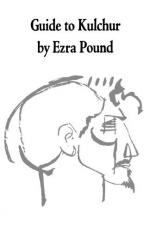
|
| Name: _________________________ | Period: ___________________ |
This test consists of 15 multiple choice questions and 5 short answer questions.
Multiple Choice Questions
1. How many pages is "Italy?"
(a) Two.
(b) Seven.
(c) One.
(d) Three.
2. "Zweck or the Aim" argues that the point of writing is to what?
(a) Reveal the whole subject from a new angle.
(b) Tell the truth.
(c) Share human experience.
(d) Record a culture's history for future generations.
3. The author says discoveries are made by men who can what?
(a) Understand.
(b) Study.
(c) Listen.
(d) Endure.
4. Where does Pound reveal he worked in "The New Learning: Part Two?"
(a) The Vatican Library.
(b) The Louvre.
(c) The Smithsonian.
(d) The Library of Congress.
5. Civilization involves a sound balance of what?
(a) Values.
(b) Education.
(c) People.
(d) Arts and science.
6. What recent social encyclical comments on economic matters?
(a) Summorum Pontificum.
(b) Quadrigesimo Anno.
(c) Annus Horribilius.
(d) Anglicanorum Coetibus.
7. What essay is noted by the author to be dry, but that something worthwhile can come from reading it?
(a) "The New Learning Part One."
(b) "Totalitarian."
(c) "Digest of the Analects."
(d) "Sparta 776 B.C."
8. In "The History of Philosophy Is ...?" the author notes that many philosophers tried to understand the world totally apart from what?
(a) Observation.
(b) Religion.
(c) Science.
(d) Experience.
9. Who is the author of "Guide to Kulchur"?
(a) W. E. B. DuBois.
(b) T. S. Eliot.
(c) William Shakespeare.
(d) Ezra Pound.
10. In what year does the author claim that a bloke with small means could still see the best of Europe?
(a) 1948.
(b) 1938.
(c) 1958.
(d) 1928.
11. What philosopher is the subject of the first essay in Section I?
(a) Aristotle.
(b) Descartes.
(c) Lao Tzu.
(d) Confucius.
12. What is the second sort of idea addressed in "The New Learning Part One?"
(a) Ideas that guide action and serve as rules of conduct.
(b) Ideas that exist and are discussed in a vacuum.
(c) Ideas that do not actually exist.
(d) Ideas that are meant to lead culture to evolve.
13. Who is commended in "The History of Philosophy Is ...?"
(a) Nietzsche.
(b) Aristotle.
(c) Descartes.
(d) Plato.
14. What does the author see as swiftness in a given field?
(a) Being genuine.
(b) Being compassionate.
(c) Being a leader.
(d) Being strong.
15. In whose work does the idea of the vortex lie?
(a) Plato.
(b) Gaudier-Brzeska.
(c) Descartes.
(d) Leibniz.
Short Answer Questions
1. How many essays are contained in Section II?
2. Whose introduction in London does Pound praise?
3. The author ends "The History of Philosophy Is ...?" with the claim that discoveries are made by whom?
4. What percentage of the time should one not respond to criticisms of one's artwork?
5. The author argues that real knowledge does not jump from where to where?
|
This section contains 423 words (approx. 2 pages at 300 words per page) |

|




